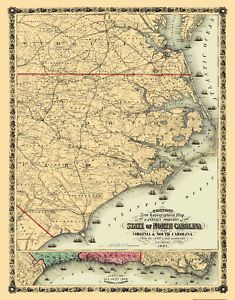 Baptists of the South struggle with the issue of chaplains. Typically opposed to government pay for religious chaplains–due to their historic commitment to church state separation–Southern Baptists are exploring other ways to evangelize Confederate soldiers.
Baptists of the South struggle with the issue of chaplains. Typically opposed to government pay for religious chaplains–due to their historic commitment to church state separation–Southern Baptists are exploring other ways to evangelize Confederate soldiers.
North Carolina Baptists have in recent months turned to the systematic distribution of large numbers of their state newspaper, the Biblical Recorder, to soldiers. Recruiting volunteers among North Carolina Baptist soldiery to distribute the newspaper within their regiments, Recorder editor J. D. Hufham week after week has devoted significant space within his periodical to print testimonials from these volunteers.
Today, a Baptist soldier and newspaper distributor volunteer, identifying himself as J. M. W., from Drewry’s Bluff in Virginia, sits down and composes a letter for publication in the Recorder. As do many other soldier correspondents, he reports on the war-time activity near his station, then discusses the distribution of newspapers. Unlike his fellow correspondents, however, J. M. W. offers a few candid remarks about North Carolina Baptists’ strategy of soldier evangelism.
…. The troops in this section are in good spirits; and they will give any Yankee force a good Southern reception who may be attempted to make a movement on Drewry’s Bluff. But I do not think it probable that the next “on-to-Richmond,” will be in this direction. I would sooner expect an effort to break in upon Petersburg or Weldon. The Yankees, however, are keeping their plan to themselves some better than they formerly did.
My “Package” of Recorders comes to hand generally in due time. It is a very pleasant task for me to distribute them in the company; for they are gladly received, and closely read. It is very gratifying to see the efforts which are making by the denomination to send “the Truth” to the soldiers. Religious reading is a much more successful way of reaching men in service, than was the system of chaplains. I shall look forward for much success to attend Army Missions. That is better than to have Chaplains. Candor leads me to say that a Chaplain, as a general thing, is of but little benefit to the soldiers.
These are the reasons: Soldiers generally look upon the Chaplain as “one of the Officers” yet having no authority. At his stated times for preaching, but few–very few–attend. Often have I seen the Chaplain of a Regiment preaching to a squad of fifteen or twenty, while others were lolling about their tents, and yet others at a game of cards. At all events they paid but little attention to the preacher. The idea seems to prevail that they can “hear him talk” any time they wish. They look upon attending preaching as a kind of “duty;” yet as a duty not to be enforced. It is very much as it is with students at College, with regard to attending “prayers.” I do not say that this is always the case with Chaplains. I think the Missionary will be received differently, and more favorably. I know a good tract or paper meets a more favorable reception. The reader is usually by himself. After reading he will reflect. Reflection leads to resolves of reformation. This is as much as can be accomplished by the preacher in any capacity. It is the wished-for effect of preaching. But let every effort be made for the moral good of the soldier; for after all is done, it will not be too much to meet and counteract the vicious habits and influences of the Camp.
Formal army missionaries, referenced by J. M. W. as a possible future tactic by Baptists, in the second half of the war are employed on a limited basis by Southern Baptists in Confederate Army camps.
Source: Letter from J. M. W., written October 16, 1862, Biblical Recorder, October 22, 1862 (link)


